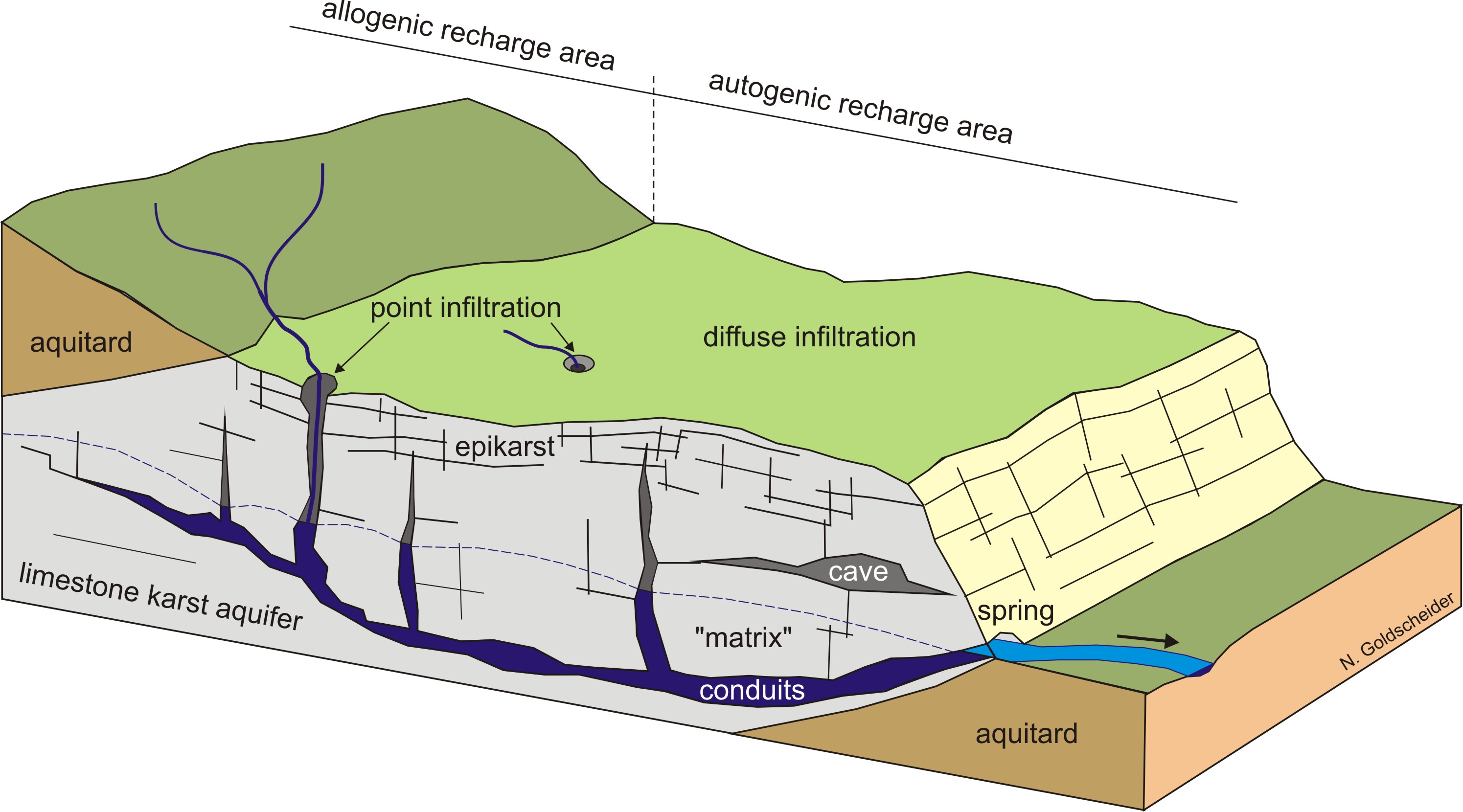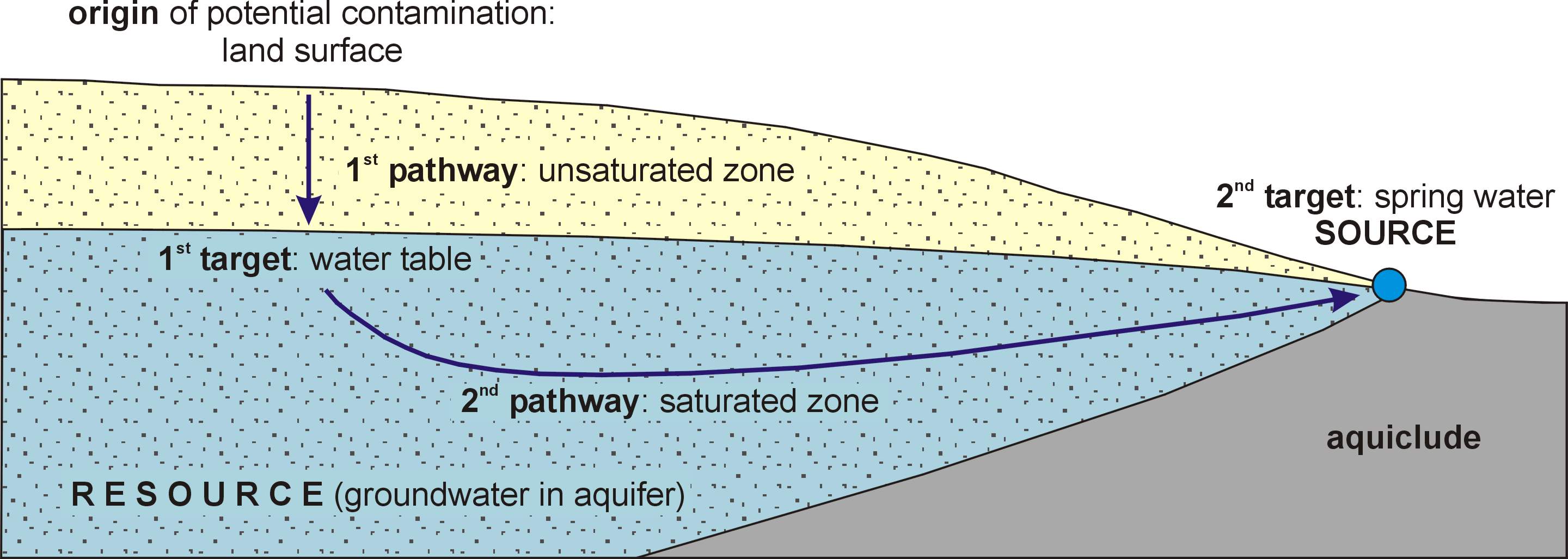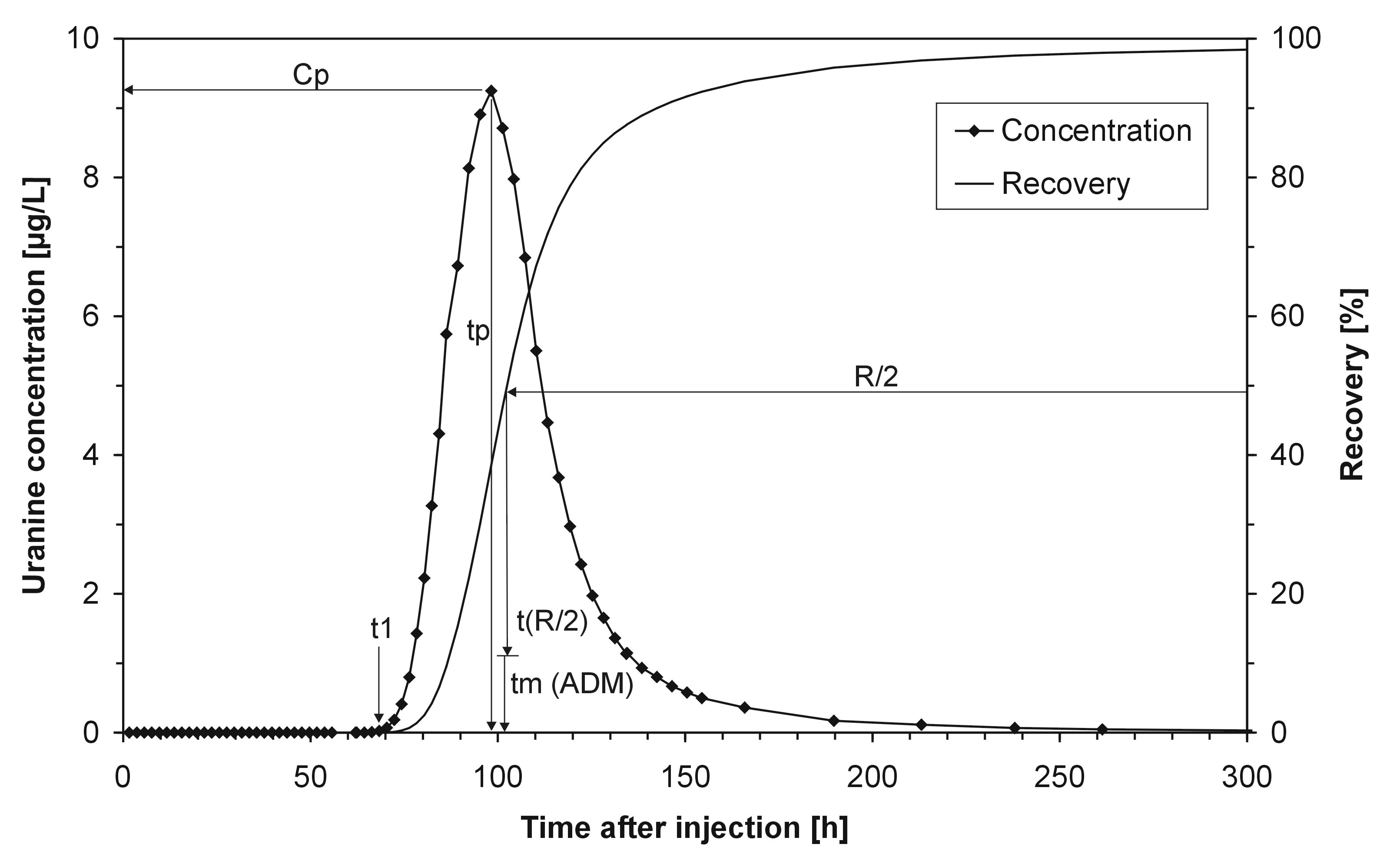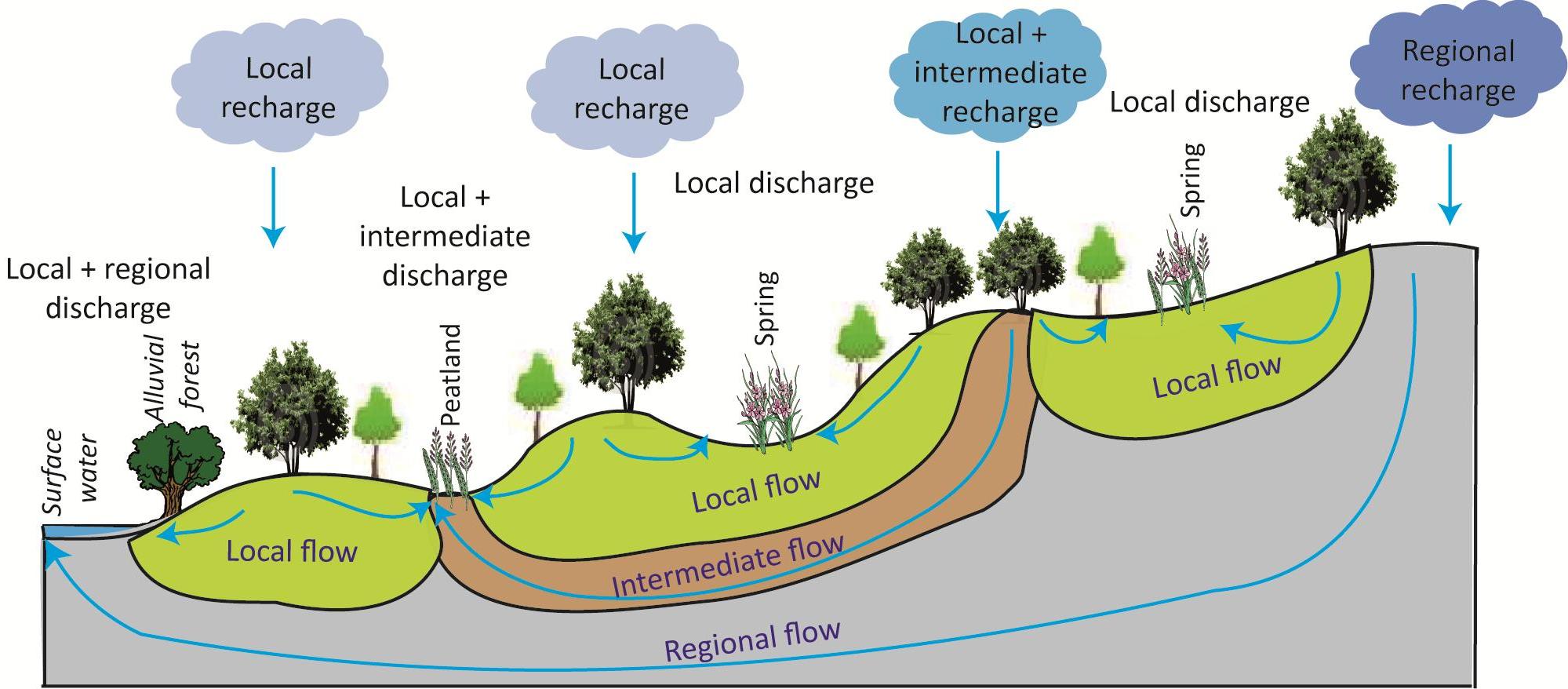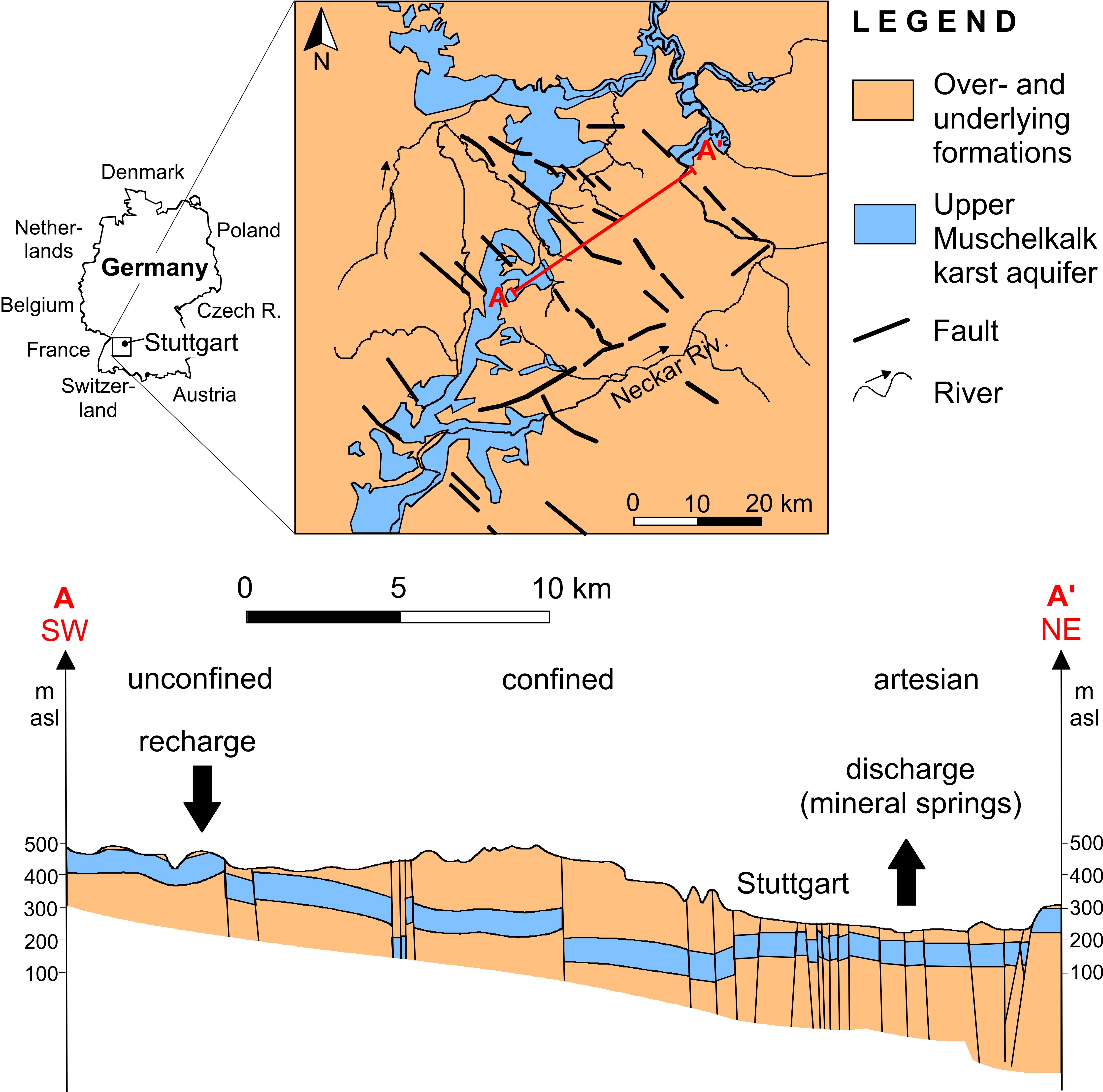Karst and Alpine Hydrogeology
About 9.2 % of humanity obtains its drinking water from karst areas. At the same time, karst aquifers are particularly vulnerable to pollution. Pollutants, including pathogenic microorganisms, can quickly penetrate through thin soils or open crevices into the underground and spread there in a network of pipes and caves.
We are engaged in the hydrogeological investigation of karst systems, using monitoring, tracer experiments and mathematical models. On this basis we develop concepts for the sustainable use and protection of karst water resources.
A regional focus is on alpine karst systems, which are characterised by a particularly high degree of complexity and dynamics, but we are also working in many other European regions and are playing a leading role in the creation of a world karst aquifer map.
Block diagram illustrating the hydrogeological function of a karst aquifer (Goldscheider & Drew 2007)
contact person:
Prof. Nico Goldscheider
Groundwater protection and management
The worst form of water waste is contamination. Therefore, the protection of groundwater from pollutant inputs is of great importance. The diversity of pollutants and the complexity of the degradation and transport processes give rise to a wide range of scientific questions with high practical relevance. One focus of our research is on particle-bound and particulate pollutants including pathogenic microorganisms.
In arid areas, not only the water quality but also the provision of sufficient water quantities is a major challenge. This is where Integrated Water Resources Management (IWRM) comes in. This involves taking an integrated view of all available water resources, including wastewater and brackish water, and all possible water uses - from drinking water to irrigation - and optimising and combining management in such a way that sufficient water of adequate quality is available in the long term.
Origin-path-target model for groundwater protection. A distinction is made between general resource protection and the protection of a specific drinking water catchment (spring or well) (Goldscheider 2009).
contact person:
Prof. Dr. Nico Goldscheider
Tracer and pumping tests
The quality of hydrogeological models and forecasts stands and falls with the quality of the data collected in the field. Tracer tests and hydraulic test techniques such as pumping tests play an important role in this respect. Tracer experiments provide information about underground connections, residence times, flow velocities and processes of contaminant transport. Pumping tests enable the determination of hydraulic parameters such as transmissivity and storage coefficient. These techniques are constantly being further developed at the institute and are applied to a wide range of practical and scientific problems.
The primary result of a marking experiment is a transit curve from which many relevant transport parameters can be obtained, such as mean residence time, linear flow velocity, dispersion and recovery (Goldscheider et al. 2008).
Contact person:
Dr. Tanja Liesch
(Pump tests and numerical modelling)
Prof. Nico Goldscheider
Artificial Intelligence & Machine Learning
Both the groundwater level and the distribution of substances in the groundwater are the result of a complex interplay of many influencing factors and represent a highly complex pattern that varies greatly in space and time. In addition to meteorological factors (precipitation, evaporation), chemical-physical properties of the aquifer and the overlying layers, as well as transport and reaction processes in the groundwater itself, anthropogenic influences such as groundwater abstraction, irrigation or general land use also play a role. Although the number of measuring points at which groundwater level and quality are determined initially appears high, the result is always influenced by the spatial location of the sampled measuring points and the time of sampling. Transferability to non-sampled areas or time periods is therefore often difficult. Furthermore, the measurement or sampling and analysis represent a considerable effort and cost factor.
Although groundwater flow and mass transport in groundwater follow largely known chemical-physical processes, modelling with analytical or numerical models in a regional or supraregional scale at a reasonable spatial resolution has been difficult so far. Spatial and temporal assessments and the associated recommendations for action or measures are therefore currently based largely on the regionalisation of point measurement data or the evaluation of temporal trends.
AI applications, in particular neural networks or deep learning processes, as they are frequently used in other disciplines for pattern recognition, offer a clear added value over the established processes. As data-based models, they are able to extract and transfer complex relationships from a large amount of data.
The Department of Hydrogeology has many years of expertise in the application of AI in the groundwater field, including projects on spatial prediction of groundwater quality, temporal prediction of groundwater levels and optimisation of monitoring networks.
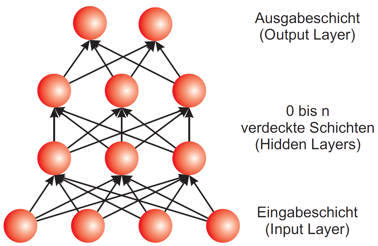
Layer-wise completely connected feed forward network with four layers, one
input layer, two hidden layers and an output layer (Liesch, 2006).
Groundwater & Ecology
Groundwater is not only a valuable water resource for human use but also interacts in many ways with surface waters and terrestrial and aquatic ecosystems. The sustainable use and protection of groundwater resources requires intact ecosystems. Aquifers themselves are also ecosystems and provide habitats for numerous organisms. One focus of our research is the hydrogeology of groundwater-dependent aquatic ecosystems and the hydrological and biogeochemical processes taking place there, with the aim of better understanding and protecting these systems.
Relationship between groundwater flow systems and groundwater-dependent ecosystems (Bertrand, Goldscheider et al. 2012)
Thermal groundwater use
More and more people live in cities. Urban hydrogeology is therefore becoming increasingly important. Among other things, this involves the supply of drinking water to the urban population, although this often comes from distant sources, as urban groundwater is usually highly contaminated.
In addition to the problems associated with urban groundwater, opportunities have increasingly come into focus in recent years: Due to the urban heat island effect, urban groundwater is particularly suitable for thermal groundwater use. An interesting special case of urban hydrogeology are thermal and mineral water deposits in large cities.
Hydrogeological map and profile of the mineral and thermal water system of Stuttgart. The springs are located in the centre of a large city and are therefore exposed to many potential hazards (Goldscheider et al. 2010).

